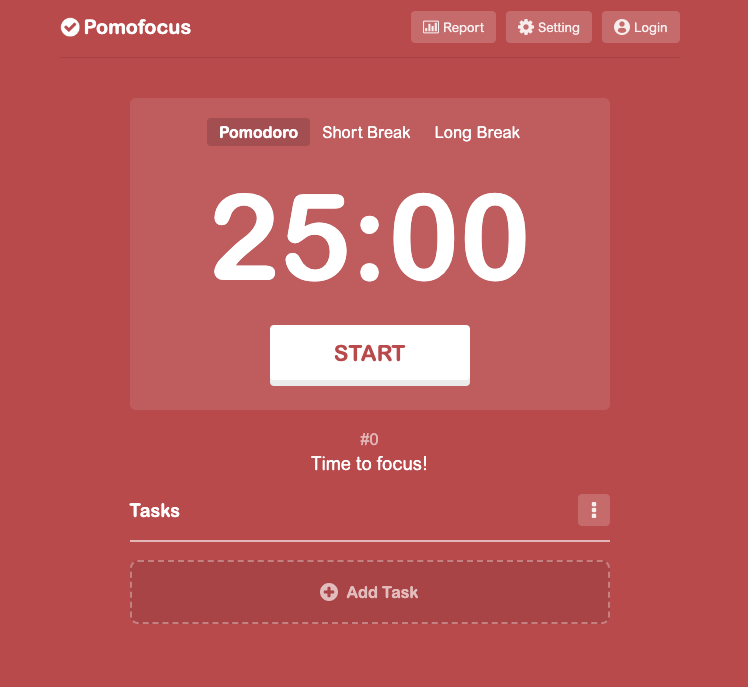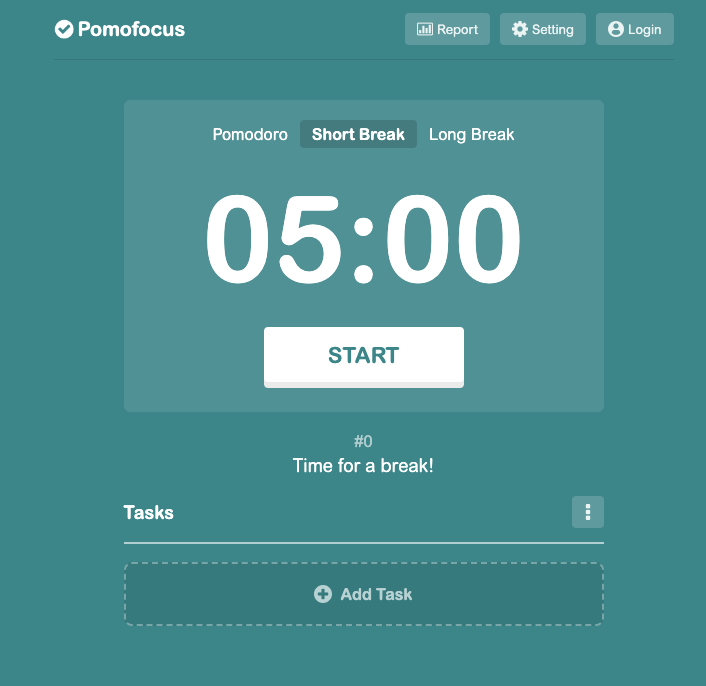Tips for Staying Focused, Motivated, and On-Track in Online Learning in PA School
Discover how to excel in distance learning education as a PA student. Get tips on setting up a productive study environment, staying motivated, avoiding burnout, and making connections with classmates. Maximize your success with distance education/online learning in PA school with this comprehensive guide!
As a Physician Assistant (PA) student, you're likely familiar with the challenges of balancing school work with other responsibilities. With the current shift towards distance learning, you may be feeling overwhelmed and uncertain about how to excel in PA school online.
University of Toronto’s PA program delivers its curriculum with a combination of online and in-person education. Other PA programs have also adopted some form of online learning as an adjunct to in-person instruction.
These online platforms (Blackboard, Medportal, etc.) often feature online lectures, virtual classrooms, and interactive assignments, group chats, allowing students to complete coursework and interact with their instructors and classmates from anywhere with an internet connection.
Some of the online PA education offer synchronous or asynchronous classes, giving students the flexibility to participate in real-time or at their own pace.
The good news is that with the right approach and tools, distance learning can be just as effective as traditional in-person education.
Here, we'll cover everything you need to know about thriving in PA school distance education.
Benefits and Challenges of Distance Education
Distance education has its pros and cons, and it's important to understand both to make the most of your online learning experience.
A. Benefits of Distance Education
Distance education/Online learning can offer a variety of benefits for students, particularly for Physician Assistant (PA) students who are looking for a flexible and convenient way to complete their education. He
Flexibility: Distance education allows you to study at your own pace and on your own schedule. This makes it easier to balance your studies with work, family, and other responsibilities.
Convenience: With distance education, you can study from anywhere with an internet connection. This eliminates the need to commute and can save you time and money.
Cost Savings: Online learning can be more affordable than traditional, in-person programs, as students may not need to pay for transportation, housing, or other expenses associated with attending a physical campus.
Accessibility: Distance education makes education more accessible to PA students who may not have access to learning opportunities that are typically seen in more populated areas. This increases access to PA education to those living in more rural or remote areas.
Complete your clinical placements in your hometown: When completing clinical placements where you live, you build networks and connections with healthcare providers and healthcare systems that can lead to meaningful employment after PA school is done!
B. Challenges of Distance Education
Isolation: Studying online can be isolating, and it can be difficult to stay motivated and engaged without the support of classmates and teachers on a daily basis throughout the school year.
Technical Difficulties: Online learning can be disrupted by technical difficulties - if the internet goes out or you have poor service slowing down your connection.
Lack of Interaction: Online learning can lack the hands-on, interactive experience that's typically associated with traditional brick-and-mortar PA schools. However UofT’s PA program offers residential blocks where hands-on in-person learning takes place.
Distractions: Home can be full of distractions, such as televisions, phones, and family members, making it difficult to focus on coursework.
Self-discipline and Motivation: Online learning requires a high level of self-discipline and motivation, as students are responsible for managing their own time and coursework.
It's important to be aware of these disadvantages and to take steps to mitigate them, such as connecting with classmates and teachers, setting a routine, and seeking help when needed.
By being proactive and taking a structured approach to online learning, you can overcome these challenges and succeed in your PA studies
Actionable tip: Embrace the Benefits and Overcome the Challenges
Embrace the benefits of distance education and work to overcome the challenges. Be sure to take advantage of virtual study groups and video conferencing tech (e.g. Zoom, FaceTime) to stay connected with your PA classmates! It’s a good way to stay in touch until you do the in-person residential blocks.
Setting up a Productive Study Environment for Online Learning
Set and create your dedicated space
Designate a specific area of your home as your study space. Use a desk or table in a quiet room. This will help you associate that space with work and increase your focus and productivity.
Make your study space comfortable: Make sure your study space is well-lit, outfitted with a comfortable chair, good lighting and a clean organized workspace.
Laptop, desktop, ipad? The best tools for studying depends on your personal preference and study habits. Use the one that is most accessible (budget, convenience, portability) and easiest for you to use.
Organize your Space: Keep your study area organized and tidy, so you can focus on your coursework. This can include having a place for all your study materials, such as textbooks and notes, as well as a place for your computer or other electronics.
Personalize your space: Add personal touches to your study area, such as photos or posters, to make it feel like your own. This can help you feel more comfortable and relaxed while studying.
Minimize Distractions: Eliminate any distractions that may take away from your focus while studying. This includes turning off your phone, logging out of social media, and closing unnecessary tabs on your computer. If necessary, consider using noise-cancelling headphones to block out background noise.
Create an Ergonomic Setup: Long hours spent sitting at a desk can be physically taxing, especially when studying online. Make sure your study space is ergonomically designed to avoid discomfort and strain. Invest in a comfortable chair, a proper desk and lighting, and take regular breaks to stretch and move around.
Actionable tip: Create your dedicated study space!
Take the time to create a dedicated study space that's conducive to your learning. Whether it's a desk in your room or a quiet corner in your home, having a designated study area will help you stay focused and motivated.
Staying Motivated and Focused with Online Learning
Distance learning can be challenging, especially when it comes to staying focused and motivated for long periods of time.
Here are some tips to help you stay on track and make the most of your online learning experience:
A. Set Realistic Goals
Setting realistic goals can help you stay motivated and focused while studying online. Start by breaking down your coursework into manageable tasks and set a timeline for completion. This will help you stay organized and focused, and give you a sense of accomplishment as you make progress.
When you make a study schedule and stick to it, you can be sure to keep up with the coursework and not get overwhelmed. Also, be sure to prioritize your work, especially if you are working part-time or have other commitments.
Create a study schedule that includes specific times for attending virtual classes, studying, and completing assignments.
B. Take Breaks
Taking regular breaks is important to help you stay alert and avoid burnout. Consider taking short breaks every hour to stretch, move around, and refocus your mind. You can also consider taking a longer break every few hours to recharge and come back to your studies with fresh energy.
Try the Pomodoro Technique for focused studying with breaks: The Pomodoro Technique is a popular time management method that can be used to increase productivity and take effective study breaks. It involves dividing your study time into 25-minute intervals, known as "pomodoros", followed by a 5-minute break. After 4 pomodoros, you can take a longer break of 15-30 minutes.
Here’s how you can use the Pomodoro Technique for online learning:
Set a timer for 25 minutes and begin studying.
Focus on one task during the 25-minute interval, without distractions.
When the timer goes off, take a 5-minute break. You can stretch, grab a snack, or do something else to refresh your mind.
Repeat the process for 4 pomodoros, then take a longer break.
Repeat the cycle throughout your study session.
The Pomodoro Technique is effective because it helps you stay focused and avoid distractions during the 25-minute intervals. The breaks also allow you to recharge and refresh your mind, which can increase your productivity and help you avoid burnout.
C. Together Alone: Stay in Touch with your PA Classmates with Distance Education
Studying online can be isolating, and it's important to stay connected with your classmates. Join online study groups, participate in virtual discussions, and take advantage of video conferencing technology to stay engaged and connected with your peers.
Actionable tip: Set a Study Schedule
To help you stay motivated and focused, set a regular study schedule and stick to it. Whether it's early in the morning or late at night, having a set schedule will help you establish a routine and make the most of your online learning experience.
Use Google Calendar, To.Do app, or Asana to get started.
Tips on How to Study Effectively for Online Studying
Effectively Online courses require a different approach to studying than traditional brick-and-mortar courses. Here are some tips to help you study online courses effectively:
A. Create a Study Plan
Develop a study plan that works for you and stick to it, this will help you stay organized, focused and motivated while studying. Make sure to allocate sufficient time for each course and break your study sessions into manageable chunks:
Assess your schedule: Take a look at your weekly schedule and determine the best times for you to study. Make sure to include time for work, classes, and other commitments.
Identify your goals: Determine what you want to achieve by studying and set specific, achievable goals. This can include completing coursework, preparing for exams, or improving your grades.
Prioritize your coursework: Based on your goals, deadlines set in the course syllabus, and schedule, prioritize the coursework that you need to complete. Focus on the most important or time-sensitive assignments first.
Create a schedule: Using your assessment of your schedule and your prioritized coursework, create a weekly or daily study schedule. Make sure to include time for breaks, as well as time to review and practice what you have learned.
Be flexible: While it's important to have a plan, it's also important to be flexible and adjust your schedule as needed. If something unexpected comes up, or if you find you need more time for a particular subject, make the necessary changes to your schedule.
Stay organized: Keep track of your schedule and progress, and make sure to update your plan as needed. Consider using a planner, a digital tool, or a study app to help you stay organized.
Ask upper year PA students how they did it! Some semesters and units are heavier than others. Speaking to your upper year buddy can provide you some insight on tips on how best to plan your schedule and time studying for heavier weeks.
B. Use Technology to Your Advantage
There are a number of technology tools and resources available that can help you study online courses effectively.
Take advantage of online study materials - supplement your learning with online courses like Hippo Education, flashcards, and educational apps to enhance your learning experience.
C. Take Notes
Take notes while you're studying to help you retain information and stay organized. See if you can download the lecture slide deck beforehand that you can print or annotate.
You can use a digital tool, such as Evernote, Microsoft OneNote, or use your iPad. Or go old-school with a pen and paper.
Use Abbreviations and Shorthand: To save time and keep up with the pace of the lecture, use abbreviations and shorthand to capture key information and concepts.
Highlight and Underline Key Points: Highlight or underline key points in the material to make it easier to review later. This will also help you quickly locate important information when you need it.
Summarize Information: Summarize information by writing down main ideas and key takeaways. This will help you understand the material better and make it easier to recall later.
Create Mind Maps or Outlines: Create mind maps or outlines to help you visualize the relationships between different concepts and ideas. This will also help you see the big picture and understand how different pieces of information fit together. After lecture you can do this on a white board or plain paper.
Review Your Notes Regularly: Review your notes regularly to reinforce your understanding of the material and to help retain information. This will also help you identify areas where you need to focus your studies.
D. Get Involved
One of the benefits of online learning is that it allows you to learn from anywhere. But, with that also comes the risk of feeling isolated. Staying connected with classmates and instructors is crucial in ensuring that you don't feel isolated and can benefit from the community of learners.
Participate in virtual discussions, attend virtual study groups, and reach out to your instructors with questions and feedback.
Avoiding Burnout in Distance Education
Spending long hours in front of a computer screen can be mentally and physically draining. Here are some tips to help you avoid burnout while studying online:
A. Take Care of Yourself
Self-care is critical to avoiding burnout while studying online. Make sure to get enough sleep, eat a healthy diet, exercise regularly, and take time for yourself to relax and recharge.
B. Manage Your Time
Proper time management is key to avoiding burnout. Create a study schedule, prioritize your tasks, and make sure to take regular breaks. This will help you stay focused and motivated and avoid feeling overwhelmed.
C. Set Boundaries
It's important to set boundaries and limit your screen time. Turn off your devices and take a break from technology after you've completed your coursework for the day. This will help you avoid burnout and maintain a healthy work-life balance.
Actionable tip: Practice Mindfulness
Practicing mindfulness can help you stay focused and reduce stress while studying online. Take a few minutes each day to meditate, practice deep breathing, or engage in other mindfulness activities to help you stay calm and focused.


